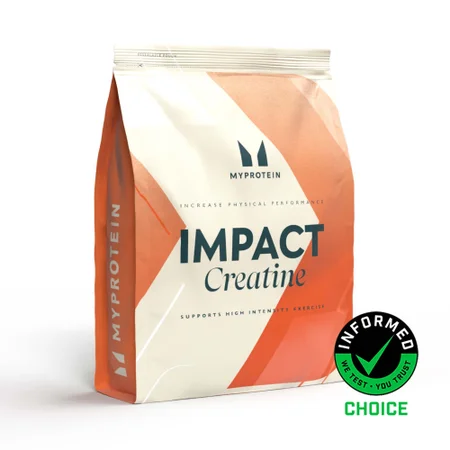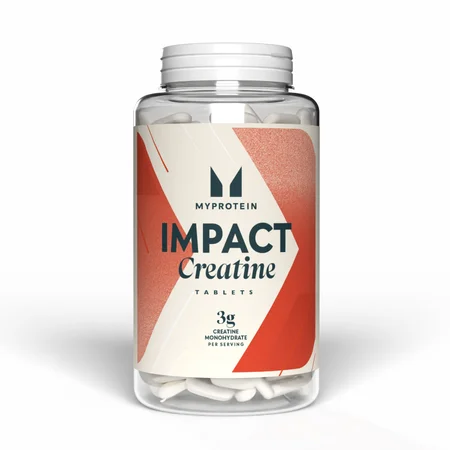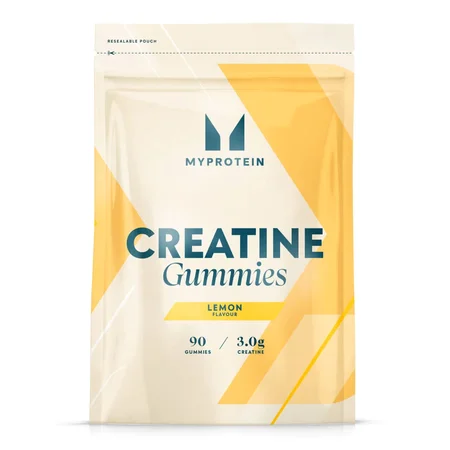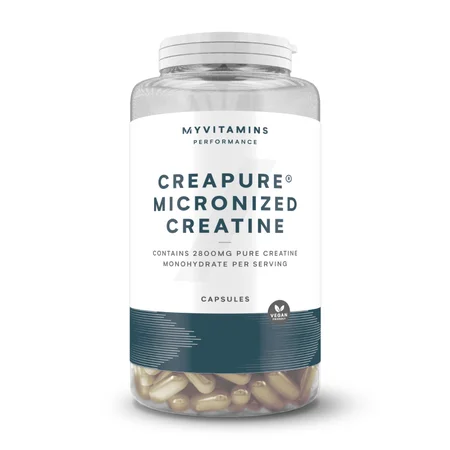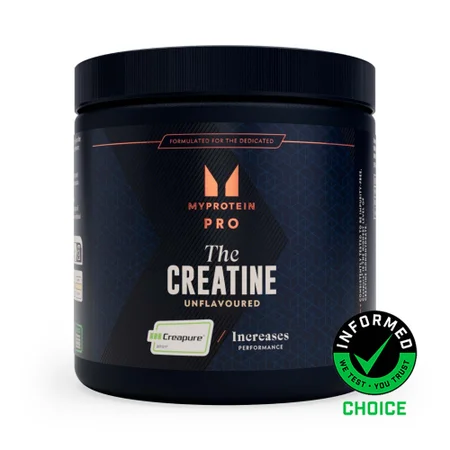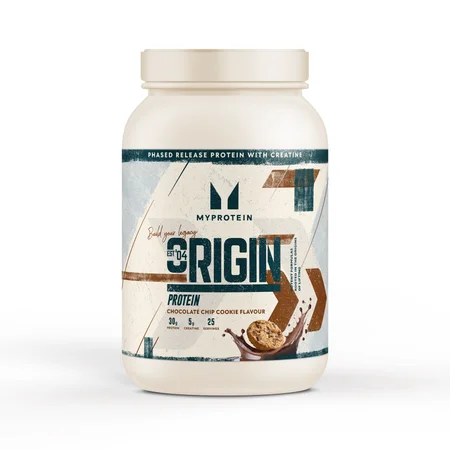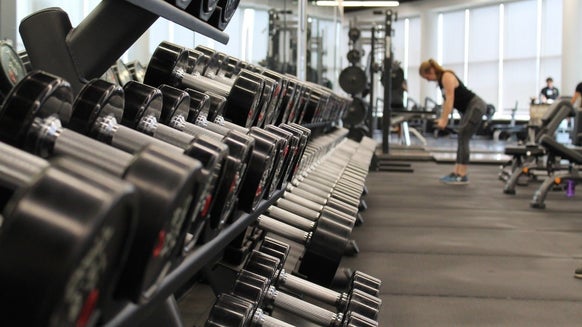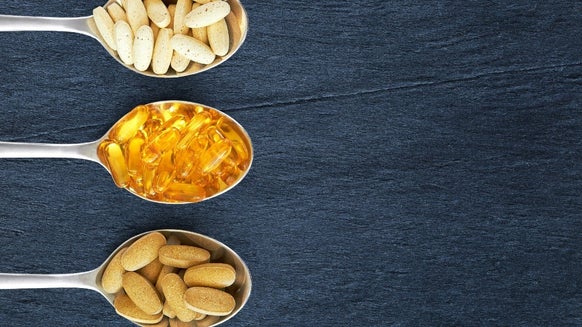
Creatine is one of the most popular supplements for gym-goers looking for some performance gains. But a lot of people question when the best time to take creatine actually is. Let's find out the facts.
First, let our nutritionist explain how to take creatine here...
Jump to:
- What is creatine?
- Why take creatine?
- Who should take creatine?
- The best time to take creatine
- How to take creatine
- Best creatine supplements
- FAQs
What Is Creatine?
Creatine is a supplement shown to increase physical performance in short, high-intensity exercise, like sprinting and weight lifting.1 It plays a role in releasing energy in our cells for optimal muscle function. Although it’s mostly used for improving performance, it has also been shown to aid in muscle recovery after a workout.2
Most of the creatine in our bodies is found in skeletal muscle. It plays a crucial role in freeing energy from the cell’s stores for use, and it also helps to rebuild one of the body’s main sources of cellular energy, adenosine triphosphate (ATP). About half of the body’s creatine comes from animal sources in our diet, and the liver and kidneys produce the rest.3
When creatine runs low, performance can decline.4 For this reason, it’s best to take creatine both before a workout and then after for recovery.
Summary: Creatine is a molecule found in the muscles and helps in the release of energy for use during anaerobic exercise.
Why Take Creatine?
Creatine can help increase your performance during short-duration and high-intensity exercises — such as heavy lifting and power exercises.3 Generally, creatine impacts your endurance, strength, and power. Regular diets provide 1-2g/day of creatine (found primarily in red meat and some seafood), which is about 60-80% of the maximum amount of creatine the muscles can store.3
Creatine is also linked to increased body mass during training. Research has shown gains of up to 0.9kg-2.2 kg (2-5lbs) more in athletes who supplement with creatine over a period of several months compared to those who don’t.2
This is why supplementing with creatine monohydrate powder is useful.
- Increased single and repeated sprint speed
- Increased performance during max effort lifts
- Increased anaerobic threshold
- Increased work capacity
Increased mental performance (eg memory, cognitive function)5

- Max effort sports like bodybuilding, Olympic weightlifting
- Sprints (track, swim, cycling), track/field events
- Sports with constant movement/running: basketball, field hockey, lacrosse, rugby, soccer, American football
- Ice hockey
- Volleyball
- Skiing
- Tennis
Combat sports6
Summary: Creatine is proven to be an effective supplement for sports and exercise performance.
Can you use creatine while cutting fat? Find out more here:

Creatine While Cutting: Should You Keep Supplementing?
Spoiler: Yes, and it can actually help your cut....
Who Should Take Creatine?
Creatine is suitable for anyone who wants to optimise their training. It is particularly beneficial for those trying to get stronger in explosive exercises, such as weightlifting or sprinting.
Those who follow vegan or vegetarian diets might see greater benefits from supplementing, as their regular diet may not contain much creatine.
If you are in a cutting phase, creatine can help build and preserve muscle stores for your next training cycle. Alternatively, if you are bulking, it helps optimise creatine levels to support performance.
The Best Time to Take Creatine
The most common question people ask about creatine is when to take it. The short answer? It's not about a magical pre or post-workout window, it's about consistency.
Creatine works by saturating your muscles' energy stores over time, not through an immediate, one-off effect.
This means the most important thing is to take your daily dose consistently, whether that's in the morning, before a workout, or with your evening meal.
That said, there are some small benefits to taking it before and after your workout.
Pre-Workout
Taking creatine around 30 minutes before your training session can help ensure your muscles are primed for action. While the effects aren't instant, having a small amount in your system can contribute to the energy needed for those short, high-intensity bursts.
The best way to maximise these stores (if you are supplementing for the first time) is to take creatine (about 5g, or 0.3g/kg body weight) four times a day for five to seven days.3 Once you’ve optimised your creatine stores, a daily dosage of 3-10g (depending on your body size) can be enough to maintain the desired higher level.3
Post-Workout
Some experts recommend taking creatine after your workout, as this is when your muscles are most receptive to nutrients, helping them replenish the creatine stores depleted during exercise. Taking it with a combination of protein and carbohydrates can also help with recovery and muscle building.
It's been shown that creatine can assist with increasing glycogen storage in the muscles post-workout when taken with carbohydrates (more than carbohydrates alone). Glycogen is stored energy for the muscles to use in the future, which helps performance and delays fatigue. Creatine has also been shown to reduce inflammation, which can help aid in injury recovery. What's more, creatine increases intracellular fluid, which can make muscles appear fuller.3
On Rest Days, Consistency is Key
Taking creatine on rest days is a great way to make sure you maintain a high level of it in your muscles. Because we need to replenish creatine, taking it even on rest days can help our muscles prepare for our next workout. Similarly to the loading phase, taking creatine even on days when you aren’t pushing your muscles to the limit can still be beneficial.4
Ultimately, the best time to take creatine is the time you'll remember to take it every day. Creatine is not itself a stimulant, so taking it before bed is not a problem and yields the same benefits. Just ensure you do not take it alongside a supplement that typically contains stimulants (eg many pre-workouts).

How to Take Creatine
There are two main approaches to creatine dosage: the loading phase and the maintenance phase.
Creatine Loading
A loading phase involves taking higher doses for several days in a row to quickly saturate your muscle stores. You might try this if you’ve never used it before or haven’t been using it for a while.
- The International Society of Sports Nutrition recommends loading with 0.3g per kg of body weight for at least 3 days.
- For a first-time user, this typically means taking about 5g, or 0.3g/kg body weight, four times a day for five to seven days.
- Vegetarians, vegans, or individuals of larger body mass may need larger doses of creatine to initially maximise their stores.
- If you choose to load, you can take doses throughout the day, including before bed.
Maintenance Dosage
Once you’ve optimised your creatine stores, a daily dosage is enough to maintain the higher level.
- The recommended maintenance dosage is typically 3-10g per day (depending on your body size).
- A common and effective maintenance dose is around 5 grams per day for everyone, which should be taken daily on both training and rest days.
Creatine Cycling
Some people choose to cycle their creatine by taking it for a period, stopping, then starting again. However, there is no real evidence that this has any benefits for improved results.
Myprotein's Best Creatine Supplements
Ready to add creatine to your routine? Here are some of our top picks, each designed to fit your unique lifestyle.
Impact Creatine
Tried, tested, and trusted to improve performance in high-intensity exercise. - Each serving contains 3g of creatine monohydrate to help you break PBs.
- Designed by our nutritionists to support physical performance and deliver results.
- Rated 5 stars by over 5000 customers.
Creatine Monohydrate Tablets
Convenient and hassle-free, perfect for taking on the go without the need for mixing. - Provides the same scientifically proven benefits as our creatine powder to support your training.
- A great option for anyone looking for an easy-to-use creatine supplement.
Creatine Gummies
Seriously tasty and independently verified, offering a delicious alternative to powders or tablets. - Each serving provides a guaranteed 3g of pure creatine monohydrate.
- No powders, no mixing, no mess—just grab, chew, and go.
- Tested by world-leading laboratories to ensure accurate dosing and ingredient purity.
THE Creatine (Creapure®)
Features Creapure®, the global standard for creatine purity with 99.99% pure creatine monohydrate. - Formulated for athletes who demand the highest quality and effectiveness.
- Delivers 3g of creatine per serving to fuel repeated bursts of high-intensity effort.
- Informed Choice certified, giving you confidence in its purity and quality.
Origin Protein (with Creatine)
Combines 30g of protein and 5g of creatine in a single, powerful serving for muscle growth and performance. - Features a phased-release protein blend to support muscle recovery long after your workout.
- An all-in-one solution for those who want to fuel their performance and recovery simultaneously.
Creatine FAQs
What is creatine?
Creatine is a molecule found in the body which frees energy from cells for use, and helps rebuild the cellular form of energy (ATP).
When should I take creatine?
There are benefits of taking creatine pre and post workout. However if it's your first time supplementing creatine, aim for four doses throughout the day for 5-7 days.
How should I take creatine pre-workout?
As it aids in short-term performance, you should aim to take your creatine 30 minutes before your workout.
How should I take creatine post-workout?
Post workout, it is best to take creatine in combination with carbohydrate and protein sources to maximise muscle retention.
What are the benefits of a creatine supplement?
Supplementing creatine helps maximise creatine saturation in cells, contributing to increased anaerobic threshold, increased work capacity and increased performance during max effort lifts and sprints. Check out our best creatine supplements.
Is it good to take creatine before bed?
Supplementing creatine at any time of the day, including before bed, can have benefits. Creatine is not a stimulant, so taking it before bed is not a problem.
Should you take it with food?
Taking creatine with food or a shake containing carbohydrates can increase its absorption, which is particularly beneficial for those focused on aerobic performance.
Should you take it with water?
Creatine can be taken with water or mixed into a pre or post-workout shake. While creatine can cause some water retention in the muscle tissue, taking it with water does not cause this effect.
Take Home Message
So, now you know that the best time to take creatine is whenever suits you and your routine.
Its benefits can come just before workouts and on rest days, so there isn’t a single rule to follow when deciding when to take it.
The most important thing is that you take it consistently.
READ THESE NEXT:

Guide To Pre-Workout | What Is It? When To Take it?
It's time to re-energise your exercise routine....

Ashwagandha: The Benefits, Side Effects & Uses
Improve your memory, recovery and reduce stress....

What Is L-Carnitine? | L-Carnitine Benefits, Dosage & When To take?
Should you consider adding this supplement to your routine?...

- Rodriguez, N. R., DiMarco, N. M., & Langley, S. (2009). Position of the American Dietetic Association, Dietitians of Canada, and the American College of Sports Medicine: Nutrition and athletic performance. Journal of the American Dietetic Association, 109(3), 509-527.
- Kreider, R. B., Wilborn, C. D., Taylor, L., Campbell, B., Almada, A. L., Collins, R., … & Kerksick, C. M. (2010). ISSN exercise & sport nutrition review: research & recommendations. Journal of the International Society of Sports Nutrition, 7(1), 7.
- Kreider, R. B., Kalman, D. S., Antonio, J., Ziegenfuss, T. N., Wildman, R., Collins, R., … & Lopez, H. L. (2017). International Society of Sports Nutrition position stand: safety and efficacy of creatine supplementation in exercise, sport, and medicine. Journal of the International Society of Sports Nutrition, 14(1), 18.
- Harris, R. (2011). Creatine in health, medicine and sport: an introduction to a meeting held at Downing College, University of Cambridge, July 2010.
- Kreider, R.B., Jung, Y.P. (2011). Creatine supplementation in exercise, sport, and medicine. Journal of Exercise Nutrition Biochemistry, 15(2), 53-69.
- Williams, M. H. (1999). Facts and fallacies of purported ergogenic amino acid supplements. Clinics in sports medicine, 18(3), 633-649.

